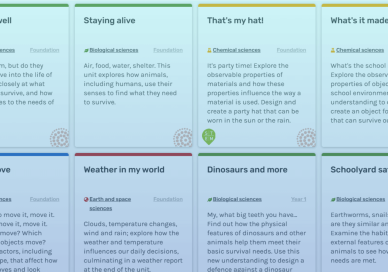Primary Connections is a website providing resources and professional learning for Australian teachers. The page you were looking has been retired as part of our new website upgrade.
If you are interested in teaching resources for primary science or tools to help students form a deep connection with the science content, please head over to the homepage, or explore the links below.
If you need our help, don't hesitate to contact us.


